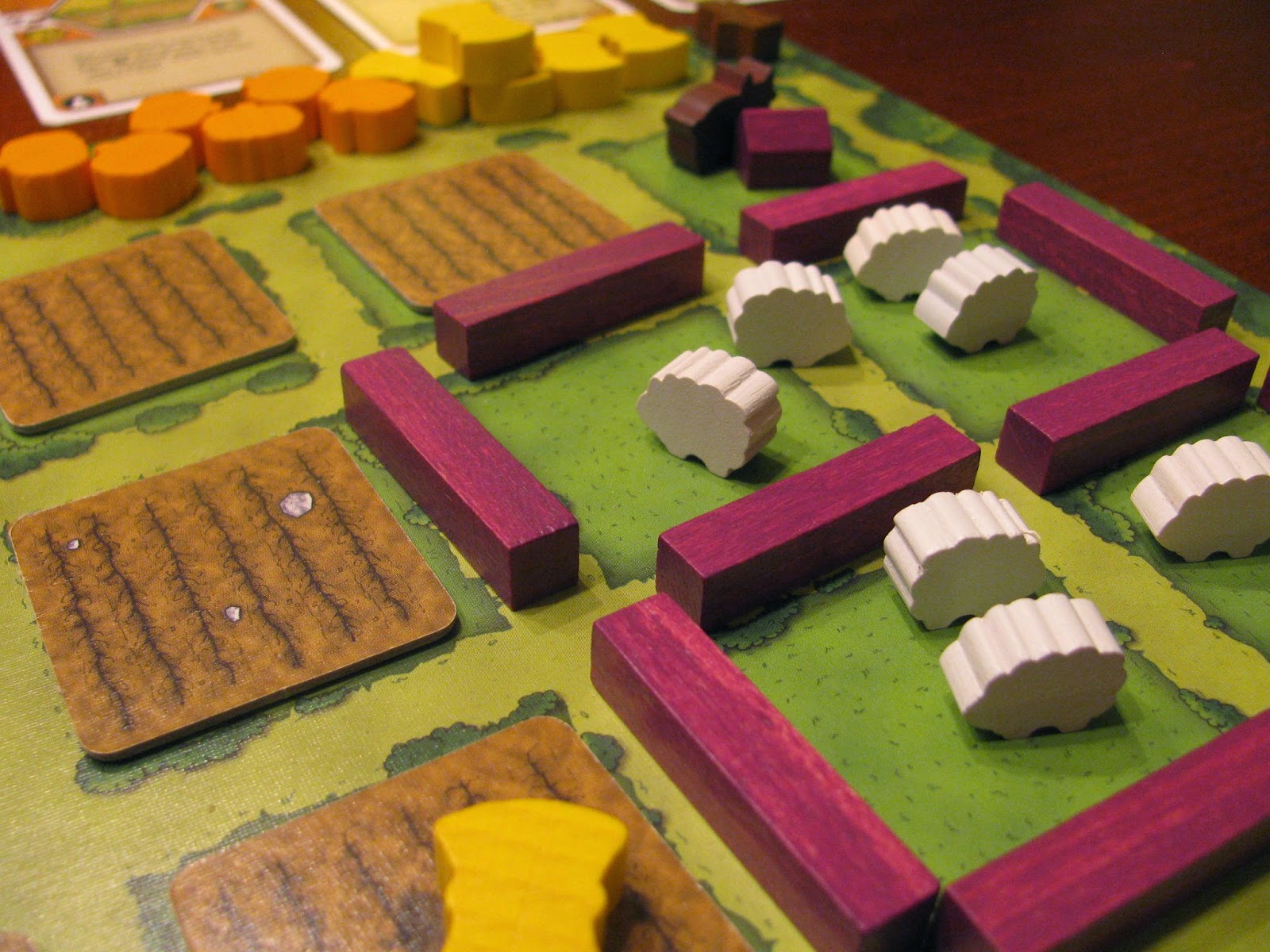 |
| Our first game of Legacy: Gears of Time |
Legacy: Gears of Time is played in four rounds, each of four turns. In each turn, every player has three actions, so each player has a total of 12 actions before the end of the round and the opportunity to score. What I found about the gameplay is that 12 actions is a very finite number. It became necessary to plan out ahead of time most of those actions early in the round. Thinking in the short term of "the best available move now" from one turn to the next doesn't always work when scoring points requires sequences of actions - drawing cards, moving down the timeline, installing technologies - under a fixed action budget.
 |
| Agricola is a favorite of ours. |
Some games are, by contrast, much more tactical. I might have an overall strategy in Alhambra, but I can't plan multiple turns in advance. The game state changes far too drastically and chaotically from one turn to the next for me to plan out a sequence of moves. "Best available move now" in the context of an overall strategy seems more effective than taking cards now with a plan to buy a specific tile later that may or may not still be there when the turn comes around again.
So what familiar games are "strategic" thinking-moves-ahead games? Chess, Hive, Quarto and Yinsh are some obvious plan-ahead games. Those are open-information, zero-luck abstracts. Low-luck, high-information games like Puerto Rico, Chicago Express, and Trajan qualify as well. These games emphasize planning ahead while accounting for opponents' motivations and possible counters.
On the other hand, "tactical" best-move-now games tend to be chaotic and randomized from one turn to the next. Can't Stop, Poker, and Incan Gold don't involve long-term planning, although they can benefit from pursuing an overall strategy. These games emphasize responding to the conditions of the turn at the time.
The distinction of strategic games vs. tactical games isn't new, but it's helpful to consider what makes them that way from a design standpoint.

No comments:
Post a Comment